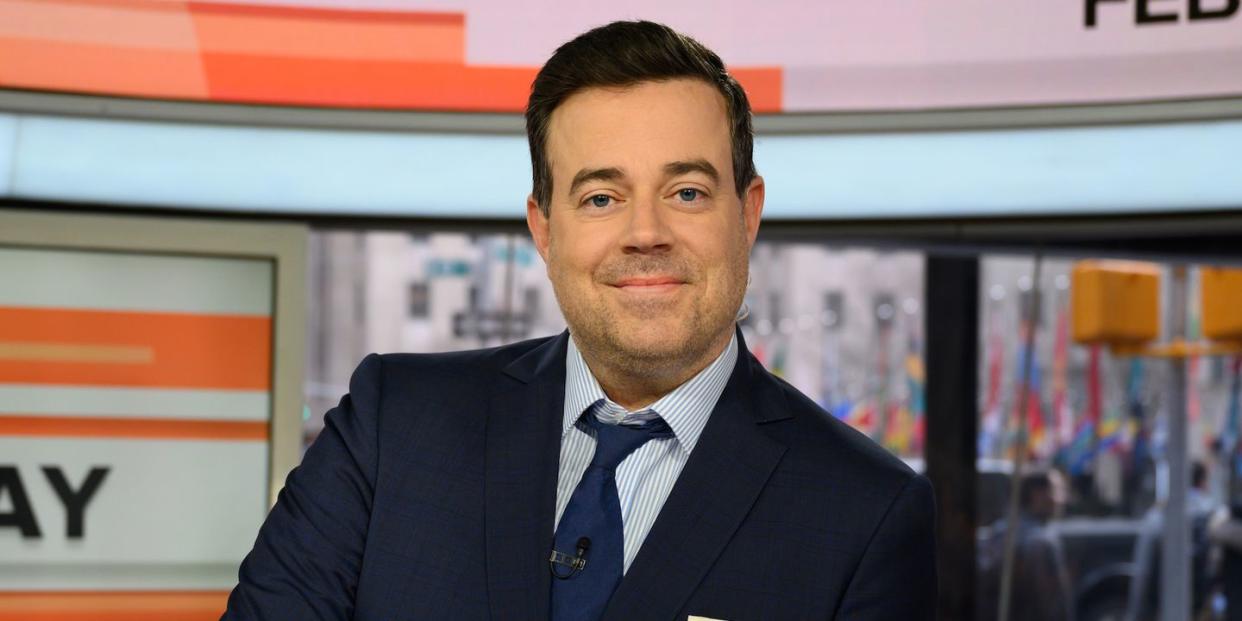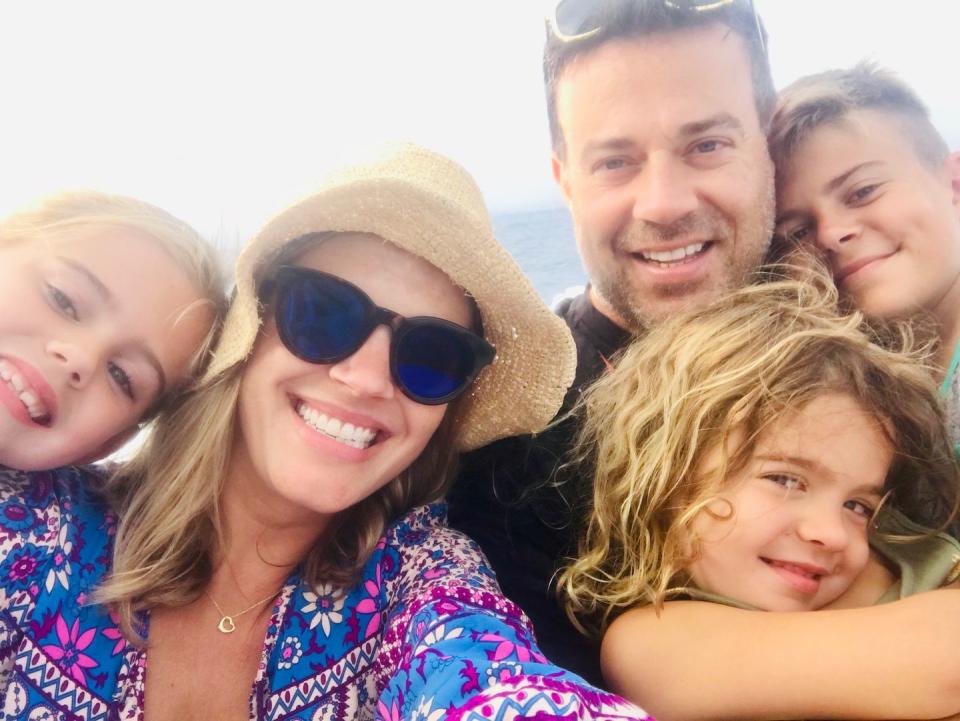Carson Daly Opens Up About What It’s Really Like to Have Anxiety As a Man

I didn’t realize we needed to have more conversations about mental health until I spoke off the cuff about having anxiety on a Today show segment in March 2018. I didn’t look at it as some big coming-out party; I’d just never had the opportunity to discuss my experience, and I chose to be honest on air.
The response was overwhelming. The next day, everywhere I went, women and men stopped me on the street and shared their experiences with mental health. As I continued to hear from strangers, I came to understand that too many people were suffering in silence. I didn’t realize I was one of those people—until I wasn’t. So I’m still talking.
Looking back, I always had symptoms of anxiety, beginning as early as when I was 10 years old and had night terrors. I’d assumed that was related to the passing of my father when I was five, but I didn’t have the tools to understand what I was experiencing. My symptoms continued to progress throughout my 20s, and I had my first panic attack on the set of MTV’s Total Request Live. I thought I was dying and went to the hospital, only to have doctors tell me I was perfectly fine.
Throughout my 20s and 30s, I had random panic attacks at odd times and without any obvious triggers. Although I haven’t had that many, one of the worst I’ve ever experienced happened while I was on vacation with my family. We were in a beautiful place, and we were all relaxed and really enjoying ourselves. It was the last place I would have thought I’d suffer from panic, yet I did. It’s terrifying when not even your family can save you from those feelings.
How do you know you have anxiety? Well, 15 years ago I confided in a friend who I knew had had similar experiences. He said, “Dude, don’t be scared—it sounds like you have anxiety. Go talk to someone about it.” I sought help from a cognitive behavioral therapist, who diagnosed me with generalized anxiety disorder (GAD) and mild panic. I dedicated myself to learning more about my situation.

Though there are many paths of coping, cognitive behavioral therapy (CBT) helped me discover that I’m hardwired very sensitively—but there’s another side of it that’s really beautiful. When I see a sunset, hug my children, or listen to music, I am deeply moved. Though I experience feelings and emotions, good or bad, more intensely, I’m blessed to have that.
I think men have this notion that it isn’t masculine to have certain feelings, and they sweep them under the carpet. But we have to start treating mental health with the same urgency as caring for a broken foot. Being diagnosed is the best thing that could ever have happened to me: It was like somebody saying, “You sprained your ankle; now here’s what you need to do.” I got answers.
If you have a friend or know somebody who is expressing similar notions of struggling mentally in any capacity, don’t ignore what they’re saying. My wife has always taken me seriously and given me the resources and space and love I need to help me get to a point where I have a very clear under-standing of who I am. I may have anxiety, but there is nothing wrong with me. I wear it like a badge of honor.
Like what you just read? You’ll love our magazine! Go here to subscribe. Don’t miss a thing by downloading Apple News here and following Prevention. Oh, and we’re on Instagram too.
You Might Also Like

